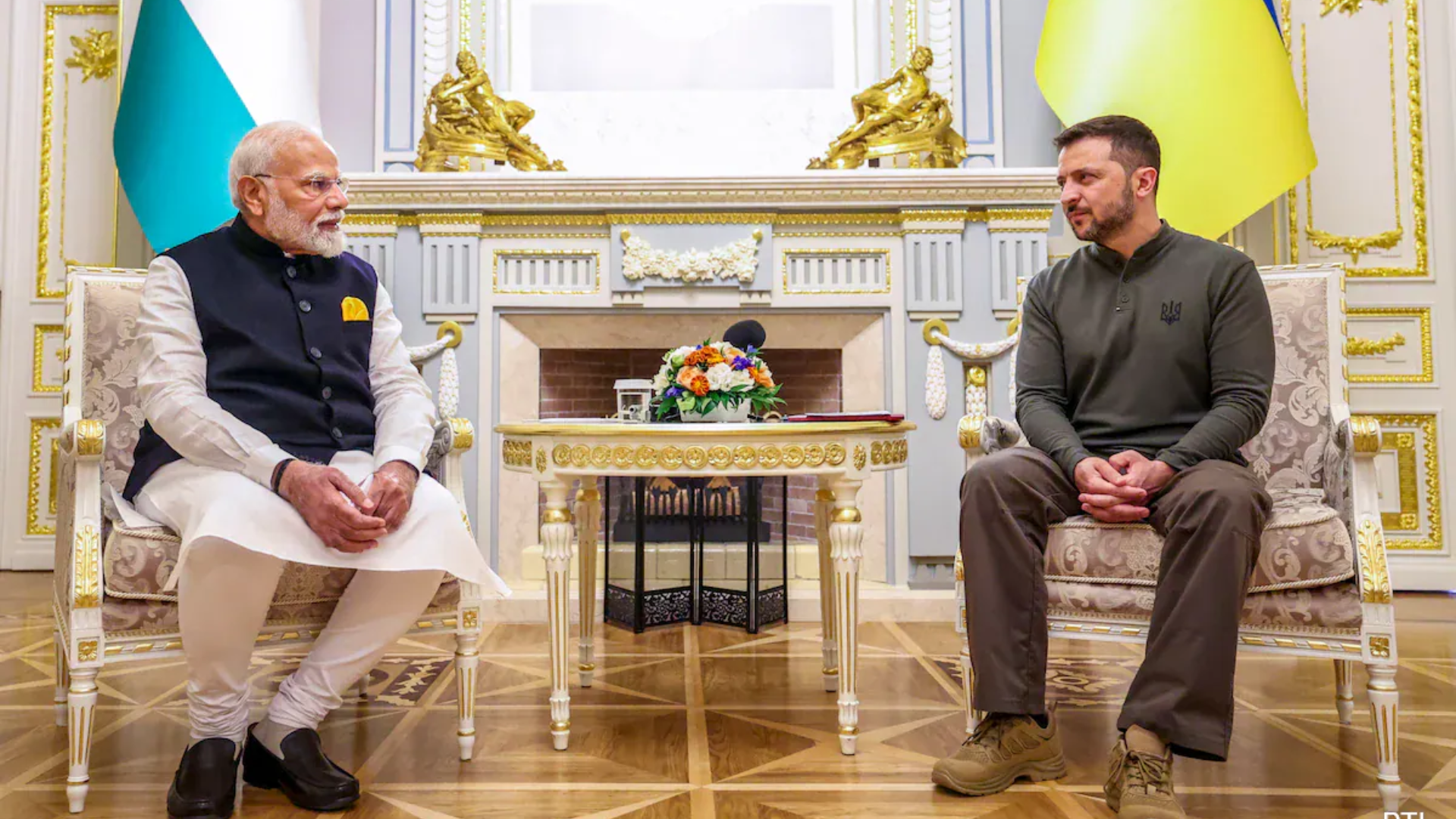In August, Indian Prime Minister Narendra Modi made a historic visit to Kyiv, marking the first time an Indian leader had visited Ukraine since the country gained independence in 1991. His arrival in the Ukrainian capital was seen as a significant moment in international efforts to resolve the ongoing conflict between Ukraine and Russia. Modi’s trip also reflected India’s careful diplomatic balancing act as it seeks to manage its long-standing ties with Russia while positioning itself as a rising geopolitical power.
Ahead of Modi’s visit, some speculated that his trip to Kyiv aimed to address the diplomatic fallout from his July trip to Moscow. During that visit, Modi’s public show of support for Russian President Vladimir Putin, amid escalating Russian missile attacks on Ukrainian cities, including the bombing of a major children’s hospital, had drawn criticism from Ukraine. Ukrainian President Volodymyr Zelenskyy had even voiced his discontent, which initially strained relations between India and Ukraine. However, Modi’s visit to Kyiv suggested a shift toward mending ties and engaging more constructively with Ukraine.
PM Modi was emotional & even crying after seeing visuals of Children who lost lives in Ukraine’s Hospital
But the same Modi is completely silent when 10 Children lost lives & more than 16 in critical condition in NICU Jhansi, UP ?
Advertisement · Scroll to continueNumber 1 Faltu Dramebaz for a reason ? pic.twitter.com/QbN6Ymz0Ws
— Veena Jain (@DrJain21) November 16, 2024
During his joint press conference with Zelenskyy, Modi reiterated his stance on the importance of dialogue and diplomacy to resolve the conflict, reaffirming India’s support for Ukraine’s sovereignty and territorial integrity. While the Ukrainian offensive into Russia’s Kursk region was not officially part of the discussions, Modi’s visit signaled an understanding that Ukraine’s actions were in defense of its territory.
India’s approach is currently focused on balancing its economic and energy interests with Russia while exploring greater engagement with Ukraine and other Eastern European countries, such as Poland, which Modi visited prior to Kyiv. Accompanied by senior officials, including Foreign Minister Subrahmanyam Jaishankar and National Security Advisor Ajit Doval, Modi’s visit underscored the growing importance of India’s diplomatic and strategic ties with Ukraine.
While the visit did not result in major policy shifts, the two leaders signed several agreements aimed at strengthening cooperation in areas such as agriculture, healthcare, culture, and humanitarian support. These agreements lay the groundwork for India to potentially play a role in Ukraine’s post-war reconstruction. The leaders also discussed opportunities to expand defense collaboration, particularly in Ukraine’s evolving drone technology sector, an area of growing interest for India.
This visit marks a shift in India’s approach to Ukraine. Unlike its position in 2014, when it described Russia’s annexation of Crimea as a reflection of Russia’s “legitimate interests,” India now seeks to adopt a more neutral and balanced stance. As India aspires to become a global economic superpower, it cannot afford to be perceived as overly aligned with Russia, especially in the context of its broader international ambitions.
A key aspect of the growing India-Ukraine ties is the increasing people-to-people contact. Ukraine is home to a significant number of Indian students, and the Indian diaspora plays an active role in sharing personal stories that challenge Russian narratives about Ukraine. Modi’s visit also saw Zelenskyy engaging with Indian journalists, expressing a desire to deepen his understanding of India and its role in global affairs. The visit highlighted the contrast between the experiences of Indian nationals in Ukraine and the fate of Indian citizens who were lured to Russia to fight in the ongoing conflict.
Overall, Modi’s visit to Kyiv represents a pivotal moment in India’s foreign policy, as it seeks to strengthen its global standing while balancing relationships with key partners in a rapidly changing geopolitical landscape.
Also Read: Bharat Progrerss Report 2024: President Murmu Became The 1st Indian Head Of State To Visit Fiji























